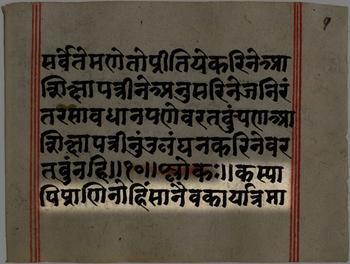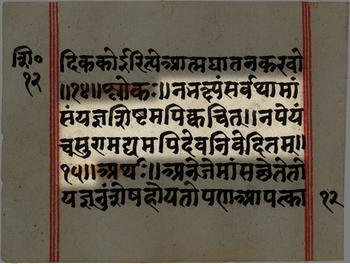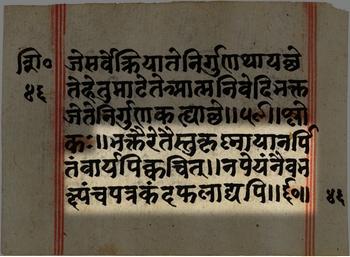| Vegetarianism in the Hindu context is about more than
just diet. It is a way of living that incorporates special rituals,
singular devotion to God, and an unwavering belief in nonviolence.
It is the last concept of nonviolence that has begun to make
vegetarianism more popular, for to be a vegetarian is to understand
that for one to contribute towards a more peaceful society we
must first tackle the violence in our own hearts and expressed
in our actions. So, it's not surprising that thousands of people
from all walks of life have become vegetarian. Among those who
have become vegetarian for the sake of peace are Benjamin Franklin,
Isaac Newton, Henry David Thoreau, Ralph Waldo Emerson, Mahatma
Gandhi, Albert Einstein, Leonardo-da-Vinci, and George Bernard
Shaw.
Skeptics argue that a vegetarian diet does
not fulfill human dietary requirements, yet the American Dietetic
Association has affirmed that a vegetarian diet can meet all
known nutrient needs. The key is to eat a wide variety of foods
like fruits, vegetables, leafy greens, legumes, and whole grain
products such as nuts and seeds. Dairy products, grains, beans,
and nuts are all concentrated sources of protein. Cheese, peanuts,
and lentils, for instance, contain more protein per ounce than
hamburger, pork, or porterhouse steak. Remember, the vegetable
kingdom is the real source of all protein. Vegetarians directly
eat the protein instead of getting it second-hand from animals.
Mahatma Gandhi adopted a strong ethical stance
in support of vegetarianism. "I do feel," he stated, "that spiritual
progress does demand at some stage that we should cease to kill
our fellow creatures for the satisfaction of our bodily wants."
He also said, "The greatness of a nation and its moral progress
can be judged by the way its animals are treated."
As mentioned earlier, within Hinduism, Vegetarianism
is directly related to spirituality as a tool to help us develop
our appreciation and love of God. In important Hindu scriptures
such as the Mahăbhărat (3-207-7), the Văsudev Măhătmya (20/21),
and the Padma Purăn (1.31.27), Ahimsă - non-violence towards
all living creatures - is referred to as the highest virtue
of life. A practical application of Ahinsă is vegetarianism.
Bhagwan Swăminărayan, the founder of the Swaminarayan Sampradaya
and the BAPS Swaminarayan Sanstha, has referred to the practice
of Ahimsă throughout His Shikshăpatri - the code of conduct
for devotees. The following are two verses from this Holy Scripture
referring to nonviolence:

My devotees shall never intentionally kill or harm any living being, not even small insects such as lice or bugs.
(Shikshapatri-Verse 11)

One shall never eat any animal product (even in a moment of extreme necessity), not even remnants of an offering in a sacrifice. One shall never drink intoxicating beverages.
(Shikshapatri-Verse 15)
Most important, however, is the practice of offering
such vegetarian food to the images of God. It is an act of devotion
and show of gratitude to God for his countless blessings.

Ătmanivedi (true) devotees should not eat or drink any such thing which is not offered first to God as an offering.
(Shikshapatri-Verse
60)
For more information on vegetarianism, click on the following link:
http://www.swaminarayan.org/essays/2006/2209.htm
|